Customer feedback, it should be OK to make mistakes, Agile processes: These are but a few tools that have made their way into my field of Software Development in the past ten or fifteen years. They stand in opposition to how we used to do things: meetings, specifications, long-term planning, get-it-right-the-first-time. While these new tools make for more pleasant days at work and often better bottom lines, I’ve found them often fall short of their actual strength. When talking to business people, they’re often perceived — to be honest, often presented — as cute little rituals that we have to put up with for the nerds in the basement while the rest of us do “real work”. This view misses the point entirely. Not being able to explain our ways of working beyond vague appeals to “modern best practices” is a sure way to create conflict instead of collaboration, and perhaps rightly so. As experts of our work, we ought to be able to make it sensible to others. Here’s a bunch of books that teaches you to.
1
If you are like most colleagues I've met, you probably think that only a some of what is valuable can be measured. You might even think that doing so is a bean counter's poor attempt to force their narrow frame of mind onto the messy and multidimensional world. One of many important lessons from science, however, is that you need to quantify a thing in order to investigate it. More so, in order to improve it, you need to understand it, predict how a change will affect it, and finally experiment and see it improve. Throwing spaghetti at the wall to see what sticks is an unreliable and expensive way to do your job, and it scales poorly. This book might just change your view on what a metric is, and make you realize that "intangible benefits" is a non-sense phrase.
2
You'll have to look beyond the author's sometimes obnoxious style, to gain from the invaluable lessons. This book is a layman's introduction to understanding uncertainty; how to limit its negatives and how to exploit its upside.
3
With the two introductory books above, we're finally in the domain of management. Deming brilliantly pulls apart the (at the time, and too often still current) prevalent ways of managing and replaces them with structured system theory tools to diagnose and improve. One big irony is that this structured view of the world might seem lifeless and for robots at a first glance. The absolute opposite happens to be the case: people are liberated from platitude expectations which they aren't given the tools to fulfill, and instead influence and responsibilities are allocated to where they belong.
4
Stepping further into the domain of developing new products and services. Many, if not most, of the Agile tools get explained via Queueing theory, Network theory and similar models. This is a dense and often technical book which the author himself acknowledges easily could have been twice the length. I'd recommend you to get the book and skim it, and then check out Youtube for some of the author's lectures. If you can at all find a way to, to to his one- or two-day seminars, which follow the structure of this book. This will level you up for life.
5
Do you see the world like a game of chess or a game of backgammon? For too long, the idea of ivory tower pondering and making all the deeper plans in search of some bullshit term like "excellence" -- the world as chess -- has robbed people of pride, a sense of control, and learning. However you feel about determinism as a philosophical concept, we are surrounded by incomplete information, not-quite-right models of the world and in-practice random events. With no hidden information and very little psychology in play, Backgammon is all about maximizing your expected value by playing with the necessary uncertainty of the world.
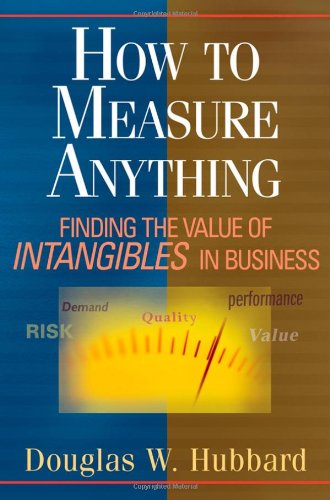
1
If you are like most colleagues I've met, you probably think that only a some of what is valuable can be measured. You might even think that doing so is a bean counter's poor attempt to force their narrow frame of mind onto the messy and multidimensional world. One of many important lessons from science, however, is that you need to quantify a thing in order to investigate it. More so, in order to improve it, you need to understand it, predict how a change will affect it, and finally experiment and see it improve. Throwing spaghetti at the wall to see what sticks is an unreliable and expensive way to do your job, and it scales poorly. This book might just change your view on what a metric is, and make you realize that "intangible benefits" is a non-sense phrase.
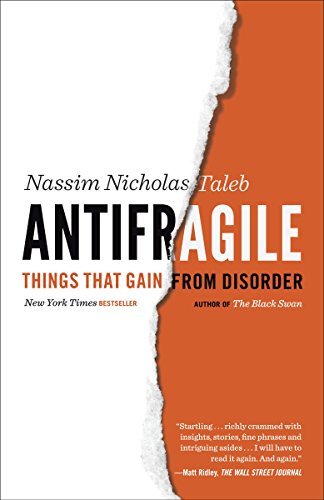
2
You'll have to look beyond the author's sometimes obnoxious style, to gain from the invaluable lessons. This book is a layman's introduction to understanding uncertainty; how to limit its negatives and how to exploit its upside.
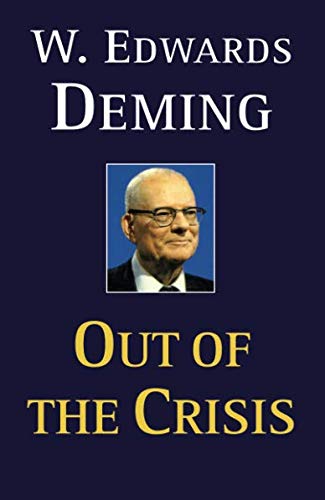
3
With the two introductory books above, we're finally in the domain of management. Deming brilliantly pulls apart the (at the time, and too often still current) prevalent ways of managing and replaces them with structured system theory tools to diagnose and improve. One big irony is that this structured view of the world might seem lifeless and for robots at a first glance. The absolute opposite happens to be the case: people are liberated from platitude expectations which they aren't given the tools to fulfill, and instead influence and responsibilities are allocated to where they belong.
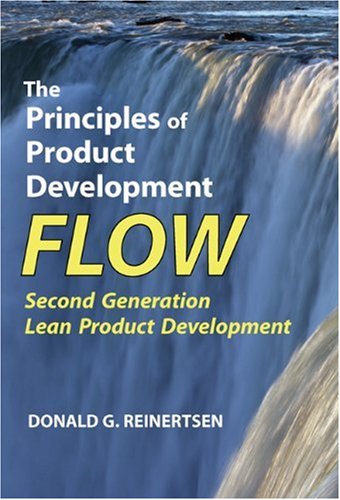
4
Stepping further into the domain of developing new products and services. Many, if not most, of the Agile tools get explained via Queueing theory, Network theory and similar models. This is a dense and often technical book which the author himself acknowledges easily could have been twice the length. I'd recommend you to get the book and skim it, and then check out Youtube for some of the author's lectures. If you can at all find a way to, to to his one- or two-day seminars, which follow the structure of this book. This will level you up for life.
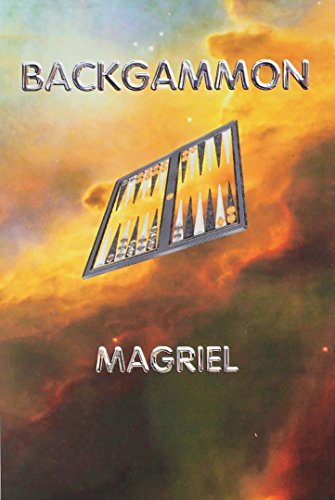
5
Do you see the world like a game of chess or a game of backgammon? For too long, the idea of ivory tower pondering and making all the deeper plans in search of some bullshit term like "excellence" -- the world as chess -- has robbed people of pride, a sense of control, and learning. However you feel about determinism as a philosophical concept, we are surrounded by incomplete information, not-quite-right models of the world and in-practice random events. With no hidden information and very little psychology in play, Backgammon is all about maximizing your expected value by playing with the necessary uncertainty of the world.
© Five Books 2026